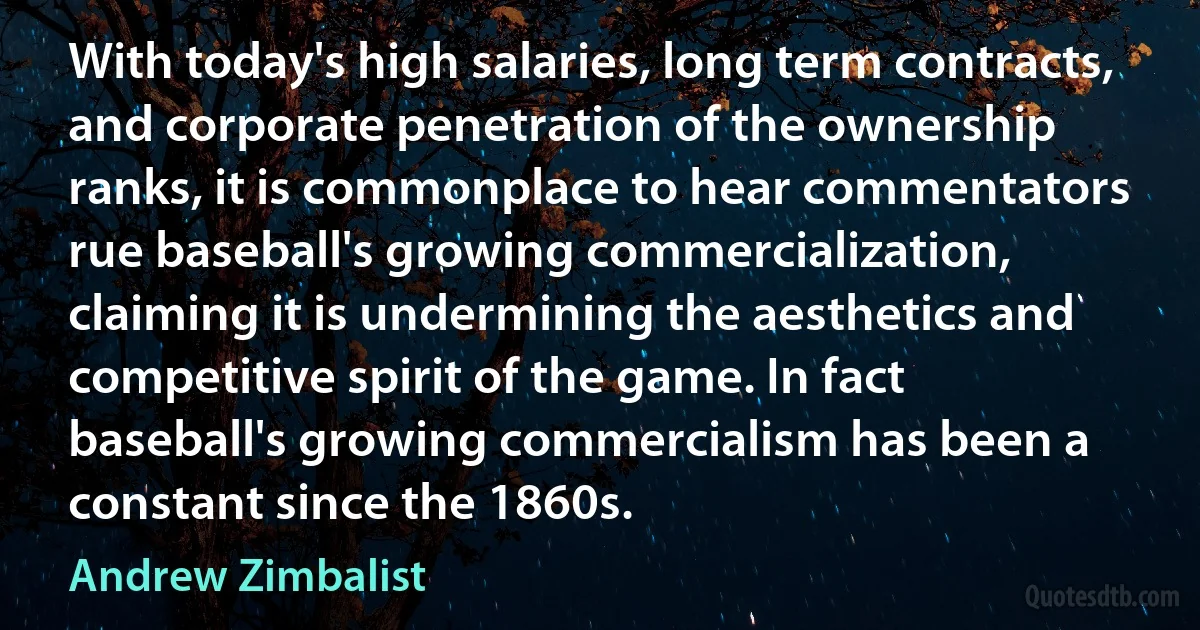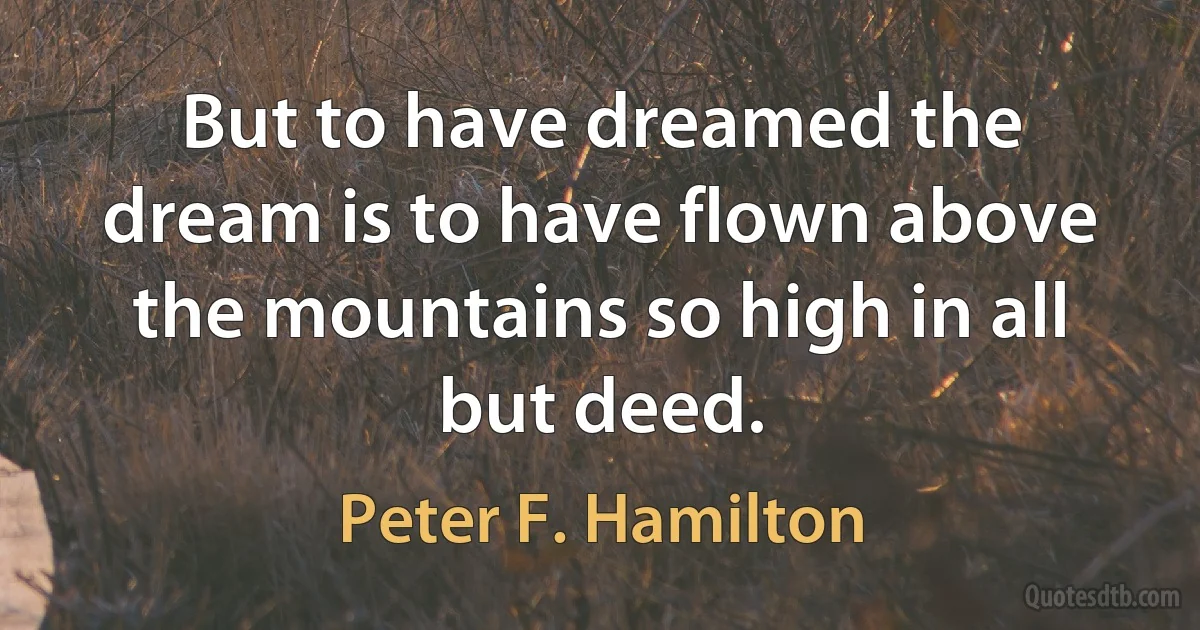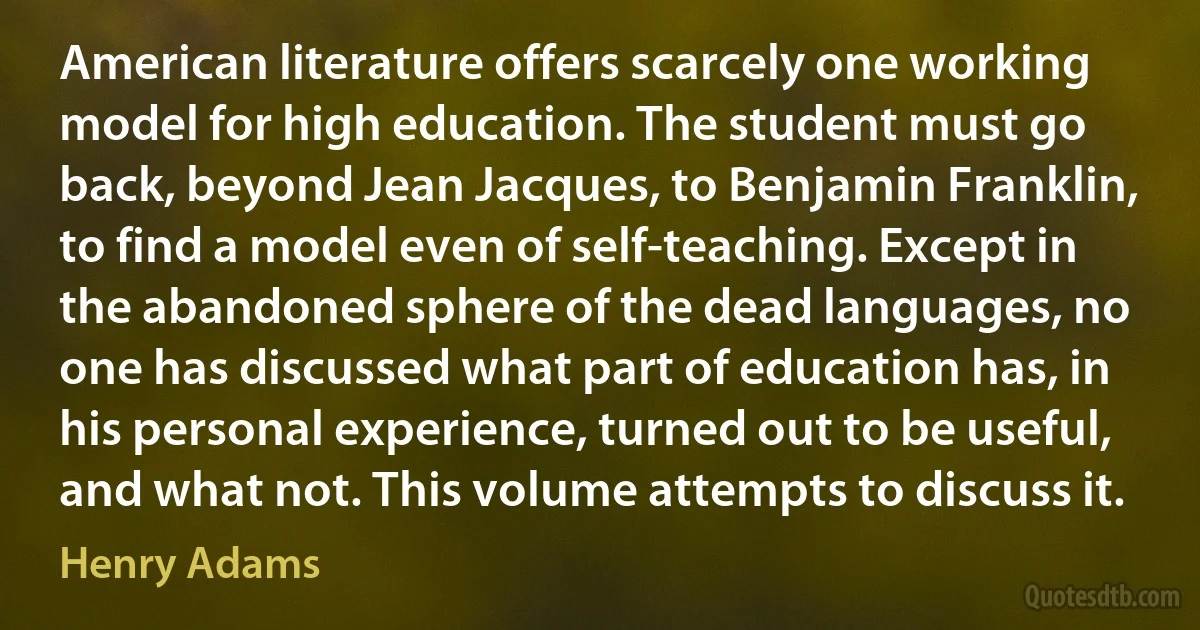High Quotes - page 92
It's widely accepted today that high schools are miserable, nerve-pinching stress machines. They are governed by dim hypocrites; the climate favors the cruelest and shallowest students, and many, if not most students, are constantly suppressing a burning sense of injustice, shame, and powerlessness.

Mark Ames
Those who proclaim and apply to poetic works a "theory of criticism," a "theoretical hermeneutic" are, today, the masters of the academy and the exemplars in the high gossip of arts and letters. Indeed, they have clarioned "the triumph of the theoretical." They are, in truth, either deceiving themselves or purloining from the immense prestige and confidence of science and technology an instrument ontologically inapplicable to their own material. They would enclose water in a sieve.

George Steiner
Judah Benjamin said, "The nations of Europe continue to abhor our policy, try as we will to convince them that we cannot do otherwise. Mr. Mason has written from London that Her Majesty's government might well have been willing to extend us recognition two years ago, were it not for the continuation of slavery among us: so Lord Russell has assured him, at any rate. Mr. Thouvenel, the French foreign minister, has expressed similar sentiments to Mr. Slidell in Paris." Slavery, Lee thought. In the end, the world's outside view of the Confederate States of America was colored almost exclusively by its response to the South's peculiar institution. Never mind that the U. S. Constitution was a revocable compact between independent states, never mind that the North had consistently used its numerical majority to force through Congress tariffs that worked only to ruin the South. So long as black men were bought and sold, all the high ideals of the Confederacy would be ignored.

Harry Turtledove
There are red lines that I as a democrat, say you cannot cross. I see it as defiance against Israel and Jerusalem as its capital as well as another protest against the historical narrative, a matter already pending before the High Court. (Responding to a MK Tibi-proposed bill recognising Jerusalem as the capital of a Palestinian state)

Reuven Rivlin
The trope was eminently Oakeshottian. Politics was not a battle of interests, or a quest for truth, or a voyage of progress – it was an aesthetic performance, to captivate an audience. But it was not high theatre (Oakeshott had also insisted that politics was a second-rate activity). It was more like commercial theatre, the drama of the boulevards that plays to our emotions or embarrassments – Rattigan rather than Racine, he explained. On this stage, Mount has certainly given us a stylish production. We might call it the comedy of reform.

Perry Anderson
I think that it is high time that we remembered that we have sworn to uphold and defend the Constitution. I think that it is high time that we remembered that the Constitution, as amended, speaks not only of the freedom of speech but also of trial by jury instead of trial by accusation.

Margaret Chase Smith
When I spoke about Bond with Fleming, he said that when the character was conceived, Bond was a very simple, straightforward, blunt instrument of the police force, a functionary who would carry out his job rather doggedly. But he also had a lot of idiosyncrasies that were considered snobbish -- such as a taste for special wines, et cetera. But if you take Bond in the situations that he is constantly involved with, you see that it is a very hard, high, unusual league that he plays in. Therefore he is quite right in having all his senses satisfied -- be it sex, wine, food or clothes -- because the job, and he with it, may terminate at any minute. But the virtues that Amis mentions -- loyalty, honesty -- are there, too.

Sean Connery
You know, I was a nerdy kid going through high school, and then I got to college and that all vanished. I mean, a lot of my good friends - when we were in high school, we would never have been able to hang out together because we were in such different cliques or whatever. Now, who cares?

Brandon Sanderson
Monckton Milnes was a social power in London, and of course he himself affected social eccentricity, challenging ridicule with the indifference of one who knew himself to be the first wit in London, and a maker of men - of a great many men. A word from him went far. An invitation to his breakfast-table went farther. Behind his almost Falstaffian mask and laugh of Silenus, he carried a fine, broad, and high intelligence which no one questioned. As a young man he had written verses, which some readers thought poetry, and which were certainly not altogether prose. Later, in Parliament he made speeches, chiefly criticised as too good for the place and too high for the audience. Socially, he was one of two or three men who went everywhere, knew everybody, talked of everything.

Henry Adams
Rajiv Gandhi was not a great Prime Minister by any yardstick. He had his high points and his low points. He did try hard in some ways, but history will judge him not as a man who left behind a great legacy, but as someone who squandered the greatest opportunity India provided to any Prime Minister in living memory to take the country to new heights. He left the country in chaos and in self-doubt, and the economy in the dust.

Rajiv Gandhi
Long into the night we were walking on the Piazza del Duomo.
He: That I was too politicized.
And I answered him more or less as follows:If you have a nail in your shoe, what then?
Do you love that nail? Same with me.
I am for the moon amid the vineyards
When you see high up the snow on the Alps.

Czesław Miłosz
To hold that a state cannot, consistently with the First and Fourteenth Amendments, utilize its public school system to aid any or all religious faiths or sects in the dissemination of their doctrines and ideals does not, as counsel urge, manifest a governmental hostility to religion or religious teachings. A manifestation of such hostility would be at war with our national tradition as embodied in the First Amendment's guaranty of the free exercise of religion. For the First Amendment rests upon the premise that both religion and government can best work to achieve their lofty aims if each is left free from the other within its respective sphere. Or, as we said in the Everson case, the First Amendment has erected a wall between Church and State which must be kept high and impregnable.

Hugo Black



